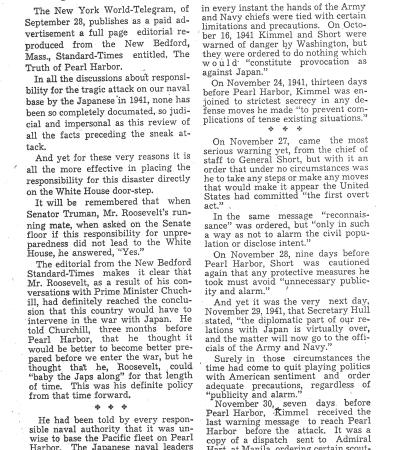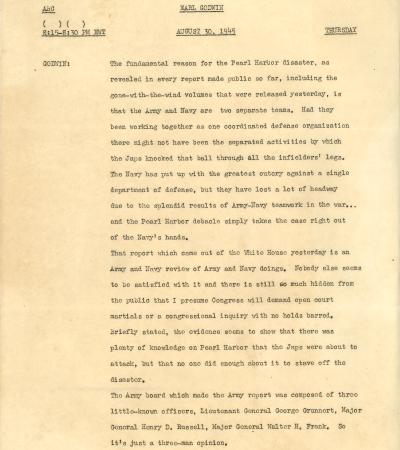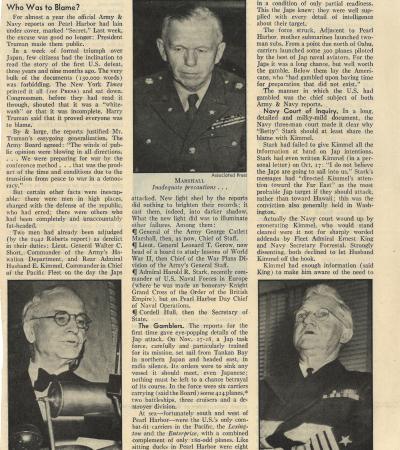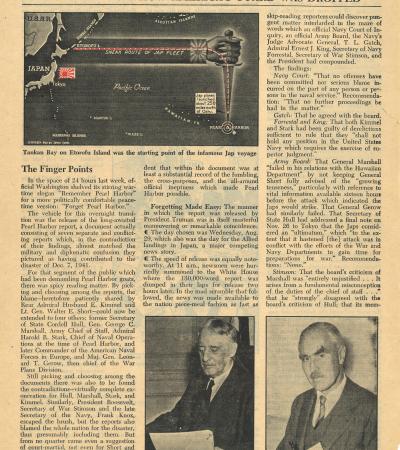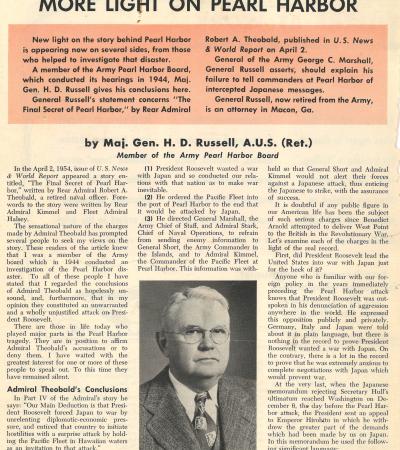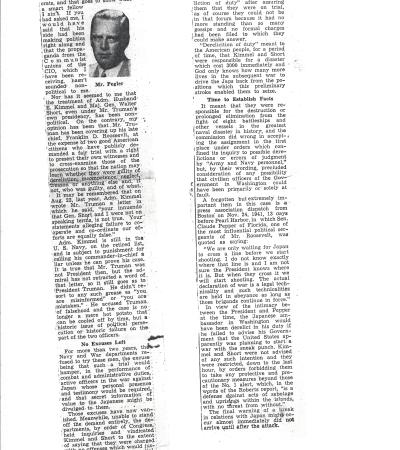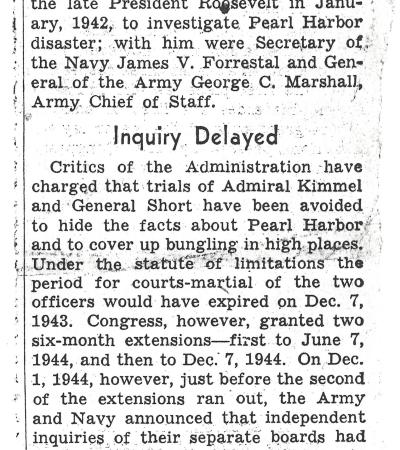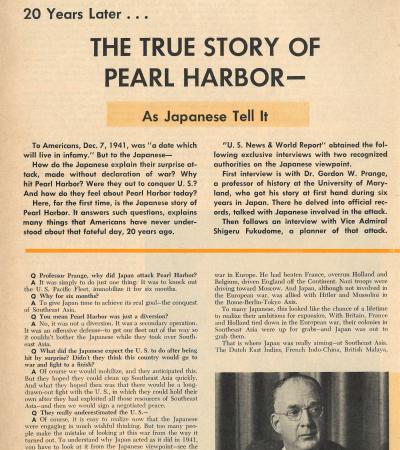Henry D. Russell was an attorney and a major general in the National Guard. In 1944 he was assigned by the Secretary of War to serve on the Army Pearl Harbor Investigation Board, a duty he assumed reluctantly. The Board’s investigation concluded that no oral or written evidence was discovered that connected President Roosevelt to the failure to send intercepted enemy information to officers at Pearl Harbor. The collection includes papers related to the investigation.
"Fixing Responsibility for Pearl Harbor", The Macon Telegraph, October 2, 1944
This newspaper article expresses concern that all the facts about Pearl Harbor have been kept from the American people and implies that President Roosevelt bore responsibility for Pearl Harbor.
Earl Godwin Radio Broadcast, August 30, 1945
This transcript expresses Godwin's view that the country at large holds some responsibilty for Pearl Harbor as President Roosevelt was villified every time he started a military preparedness program. He also places blame on poor communication between the Army and Navy.
"Pearl Harbor Report", Time, September 10, 1945
This magazine article discusses the recent release of official Army and Navy reports on Pearl Harbor. The reports provide the public with some details of the diplomatic and military conditions prior to the attack and sought to clarify responsibility for the lack of preparedness by American forces.
"Pearl Harbor: How America's Guard Was Dropped", Newsweek, September 10, 1945
This magazine article details the release of a 130,000 word report to the public, which describes a series of investigations into Pearl Harbor. It explains the sometimes contradictory nature of the conclusions that were reached and outlines a lengthy calendar of diplomatic and military events that occurred before the attack.
"More Light On Pearl Harbor" by Major General H. D. Russell, U.S. News & World Report, May 7, 1954
In the article, Russell refutes Rear Admiral Robert A. Theobald's accusations that President Roosevelt intentionally provoked Japan into attacking Pearl Harbor. Russell argues that Roosevelt consistently sought to avoid war, as evidenced by his diplomatic efforts that preceded the attack. He dismisses Theobald's claims as baseless and defends the actions of military officials involved.
"Kimmel and Short" by Westbrook Pegler
This newspaper article accuses President Franklin Roosevelt of covering up actions taken prior to Pearl Harbor and of scapegoating Adminal Husband E. Kimmel and Major Genearl Walter Short.
"The Pearl Harbor Story"
This newspaper article states that the trials of Admiral Kimmel and General Short have been avoided to hide facts about Pearl Harbor and cover up bungling in Washington D.C. It also anticipates the release to the public of reports from the Army and Navy boards of inquiry.
"The True Story Of Pearl Harbor - As Japanese Tell It", U.S. News & World Report, December 11, 1961
These two interviews provide insights into the Japanese perspective on the Pearl Harbor attack. According to interviews with experts, Japan's primary objective was to neutralize the U.S. Pacific Fleet to secure Southeast Asia. The attack, while a tactical success, was deemed a strategic failure, inadvertently galvanizing the United States into a unified war effort and revolutionizing naval warfare through the prominence of aircraft carriers.
